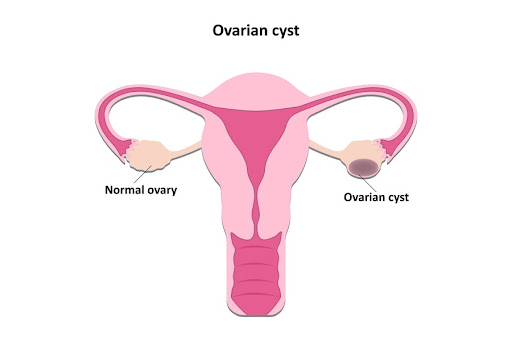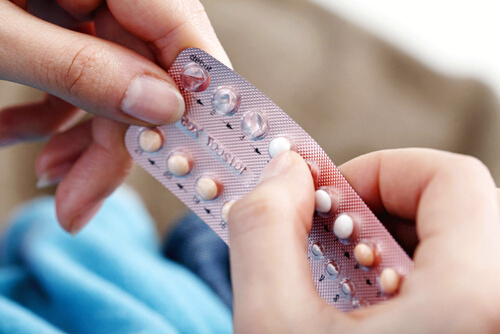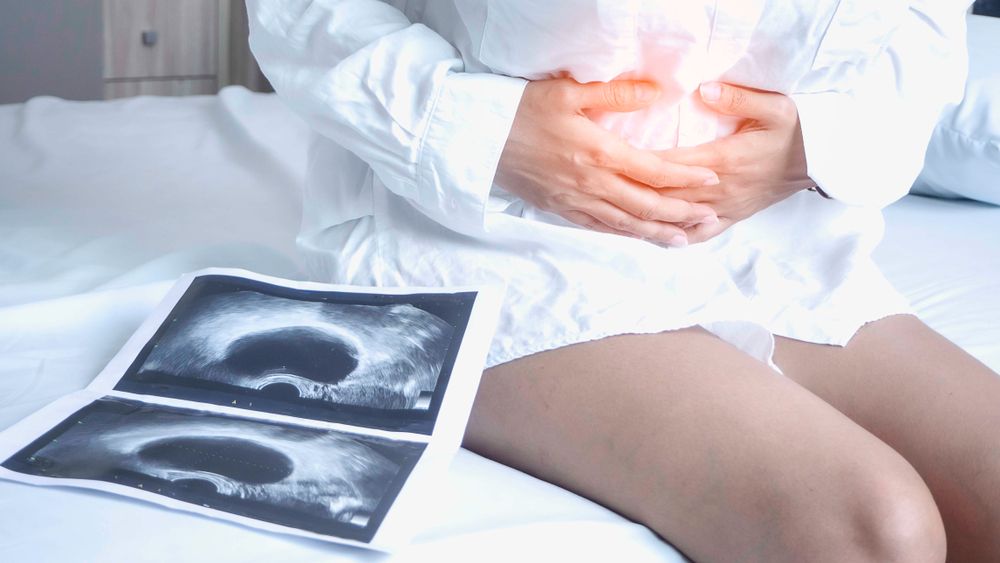The female reproductive system is made up of many parts, each of which is necessary in order for us to give birth. That’s why it’s so important to check in with your OBGYN annually to make sure that nothing is amiss. Remember that health problems are much easier to catch and fix earlier on rather than once they’ve grown and affected other parts of the body.
Aside from giving birth, however, there is another good reason to check on your reproductive health – to keep the rest of your body healthy. Although you may not be planning on having children any time soon, your reproductive system is still there, and it can get sick. Since no part of your body lives independently, it’s easy to see how even tiny organs like ovaries can affect other parts of the body. For example, ovarian cysts can cause pain, rupture, or even indicate an underlying health condition. So yes, regular gynecological check-ups are always a good idea, even if you’re not attempting to have children at this exact moment.
Today we’ll go over the basics regarding ovarian cysts, a very common condition that affects females’ ovaries.
What Are Ovarian Cysts?
Generally speaking, females have two ovaries – one located on either side of the uterus. Occasionally, however, a small pocket of fluid can grow inside or on the surface of an ovary. These sacks of fluid are called ovarian cysts. Ovarian cysts are an extremely common condition that affects millions of women in the US each year. Having said that, only about 8% of premenopausal women develop a cyst that needs treatment. That is because most ovarian cysts do not cause any symptoms and typically fade on their own over time.
Ovarian Cyst Symptoms
As mentioned earlier, most ovarian cysts are minor enough that they don’t cause any discernible symptoms at all. Occasionally a cyst may result in uncomfortable symptoms, especially if the cyst is very large or has ruptured.
These symptoms may be:
- Pain or discomfort in the lower abdomen.
- An irregular period.
- Bloating in the abdomen.
- Pain or discomfort during bowel movements.
- Pelvic pain.
Very sharp, sudden pain can be an indication that an ovarian cyst has ruptured. Although unlikely, this does happen occasionally and you should always consult a medical professional if you suspect that your cyst has burst. Left unmonitored, a ruptured cyst can become infected. Another possible condition that may result from a cyst is ovarian torsion (i.e., a twisted ovary), which does require surgical treatment.
What Causes Ovarian Cysts?
Most ovarian cysts develop as a side product of your menstrual cycle. These cysts are fairly common and typically resolve themselves with little to no symptoms. Occasionally, however, ovarian cysts can appear due to other reasons.
There are, however, a number of risk factors that can increase your chances of developing ovarian cysts.
These risk factors are:
- A hormonal imbalance or problem.
- Pregnancy
- Pelvic infections
- Endometriosis
Types Of Ovarian Cysts

There are a few different types of ovarian cysts that can occur. The main thing to know is that these cysts fall into two categories – functional cysts and other cysts. Functional cysts occur as a result of your menstrual cycle and typically fade on their own. Here are a few of the most common types of cysts:
- Follicular cyst – This falls into the category of “functional cysts” and occurs when a follicle continues to grow instead of releasing your monthly egg.
- Corpus luteum cyst – This cyst is also a “functional cyst” and occurs when your corpus luteum accumulates fluid inside of it.
- Dermoid cysts – These cysts are formed from embryonic cells and can contain hair, skin, or other tissue.
- Cystadenomas – Emerges on the surface of an ovary and may be filled with mucous.
- Endometriomas – These cysts are related to a condition called endometriosis. Endometriomas are a byproduct of this condition. Specifically, endometriomas occur when uterine endometrial cells form a growth on the outside of your ovaries.
Ovarian Cyst And Fertility
Fortunately, most ovarian cysts do not affect your fertility. The only cysts that are frequently accompanied by fertility problems are endometriomas. There are other related conditions, however, like PCOS, that may result in further fertility problems. Always consult your gynecologist or OBGYN if you notice or feel anything concerning. An OBGYN can examine you for cysts, discern what kind of cyst it is, and tell you whether or not it can affect fertility.
Ovarian Cyst Treatment

An ovarian cyst will often occur temporarily and resolve itself within a few months, resulting in little to no symptoms or side effects. Occasionally, however, a cyst may need intervention if it’s causing excessive discomfort.
Diagnosis
There are a variety of ways in which your OBGYN can diagnose an ovarian cyst and figure out what type it is. Common diagnostic procedures include a pelvic ultrasound, laparoscopy, pregnancy test, or a blood test.
Non-Invasive Treatment
Aside from simply waiting to see whether the cyst fades on its own, a doctor may also recommend a course of hormonal contraceptives. Although birth control will not shrink an existing cyst, it can help prevent cysts from recurring.
Ovarian Cyst Surgery
In the case that a cyst grows to be very large or does not begin shrinking after a few months, your doctor may recommend surgery. Laparoscopies and laparotomies are two commonly performed surgeries used to treat cysts.
Common Questions
Here are some answers to common questions related to ovarian cysts.
What Does Ovarian Cyst Pain Feel Like?
Although most ovarian cysts are asymptomatic, occasionally, they do result in pain or discomfort. This pain can be either sharp or dull, and will typically be felt in the lower abdominal area. The discomfort may worsen during your period when you’re producing more hormones. If the cyst bursts, you may also experience very sudden sharp pain.
Please Note: Always see a doctor if you experience sudden or severe pelvic/abdominal pain. Keep in mind that ovarian cysts are just one possible cause of pelvic pain. There are a variety of serious conditions that may emulate similar symptoms, so the best policy is always to consult a doctor if you notice anything off.
How To Shrink Ovarian Cysts Naturally?
Your doctor may advise you to simply keep an eye on the cyst and give it time to resolve itself. If you find yourself in this situation, please keep in mind that there is no way to shrink an ovarian cyst by using “home treatments.” Do not attempt to mix garlic and baking soda or make any other homemade medicines. These may harm your vaginal health and are not effective.
Having said that, you can alleviate some of the symptoms and manage the pain associated with a cyst. Over-the-counter medication, gentle massaging, light exercise, and heating pads are good ways to alleviate light discomfort.
Remember to always consult with your doctor. However, they may recommend a specific course of treatments for the cyst.
Can Ovarian Cyst Cause Infertility?
As we mentioned earlier, most ovarian cysts do not cause infertility. In fact, functional cysts typically have no effect on your physical health whatsoever. Having said that, occasionally, some cysts can turn out to be endometriomas. These types of cysts do impact fertility, and you should always talk to an OBGYN specialist if you suffer from this type of cyst.
Cool Springs OBGYN
Here at Cool Springs Obstetrics & Gynecology, we’ve been providing women’s healthcare services for over 20 years. We offer not only a high quality of medical care, but a genuine shoulder for our patients to lean on. That means that we treat everyone that comes through our door like they are family and support them through thick and thin. We are proud to call ourselves a cornerstone of women’s health in the Tennessee area and hope that you’ll give us a try. Whether you live in Brentwood, Nashville, or Franklin, TN, we can be the OBGYN for you.
Our practice offers a variety of gynecological services- including routine exams, preventative care, and treatment for an array of conditions.
So if you feel any pelvic or abdominal pain, don’t hesitate to reach out. Our specialists will be able to diagnose the problem and recommend a course of treatment. Call or visit our website here to make an appointment today.

